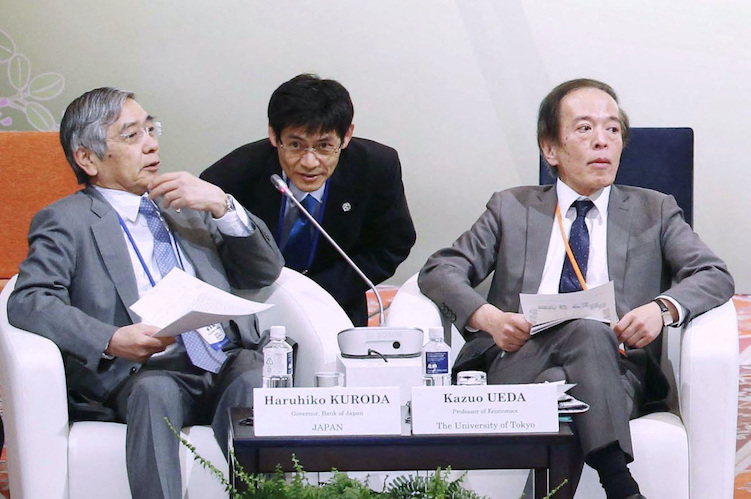Bank of Japan (BOJ) Governor Kazoo Ueda has played down concern about the cost of phasing out the country’s huge monetary stimulus.
Ueda said there was “still a distance to go” before the central bank ends its ultra-loose monetary policy.
But he said consideration about the central bank’s finances would not prevent it from taking such action when the appropriate time comes.
His remarks come at a time when markets are rife with speculation he will dismantle his predecessor Haruhiko Kuroda’s radical stimulus programme.
ALSO SEE: New Home Prices Edge up in China, After Falling for 4-Months
Speaking at an academic seminar on Saturday, Ueda said the BOJ’s profits will be squeezed when it raises interest rates because doing so would increase interest rate payments it makes to financial institutions’ reserves parked at the central bank.
But it is also likely to earn higher interest income as its current government bond holdings are replaced by higher-yielding bonds, he said, adding it was hard to accurately predict to what extent a future exit could affect the BOJ’s finances.
“The objective of the Bank’s monetary policy is achieving price stability, which is its mission as stipulated by law. Considerations of the Bank’s finances, etc, do not prevent it from implementing necessary policies,” Ueda said in a speech at an annual meeting of the Japan Society of Monetary Economics.
“A central bank’s ability to conduct monetary policy is not impaired by a temporary decrease in its profits and capital, provided that it conducts appropriate monetary policy,” he said.
Under a policy called yield curve control (YCC), the BOJ guides short-term interest rates at -0.1% and caps the 10-year government bond yield around 0% to reflate growth and push up inflation sustainably around its 2% target.
It also maintains a massive asset-buying programme deployed in 2013.
Some academics have warned the BOJ’s huge balance sheet will make an exit from ultra-loose policy difficult by exposing it to massive losses that could put its credibility on the line.
While inflation has exceeded 2% for more than a year, Ueda has said the BOJ must keep monetary policy ultra-loose until the recent cost-driven inflation turns into price rises driven by solid domestic demand and higher wages.
But he has also said the BOJ will consider an exit when sustained, stable achievement of its price target is in sight.
- Reuters with additional editing by Jim Pollard
ALSO SEE:
BoJ Dismiss Rumours Ultra-Easy Policy Will be Ditched
Yield Curve Call Sparks BOJ Policy Doubts as Yen Struggles
China’s Factory Activity Expanded in September, Survey Finds
China Evergrande Chairman ‘Suspected of Crimes’, Company Says
























